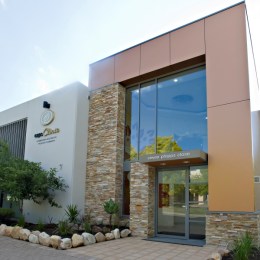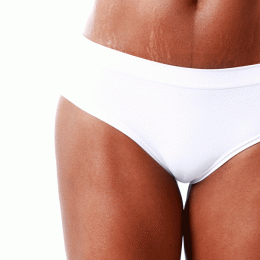A Chinese tourist, 33, accused of carrying out a cosmetic medical procedure that left a woman in a critical condition in hospital after a heart attack (Editor’s after-note: The patient died on Friday, September 1) had been in Australia five days on a tourist visa and had a ticket to fly out today (Thursday, August 31).
Jie Shao, 33, appeared in Sydney’s Central Local Court charged with recklessly inflicting bodily harm and using a poison so as to endanger life. Each offence carries a penalty of 10 years in prison. The court heard that Shao had no Australian medical qualifications.
The 35-year-old patient, Jean Huang – the manager and co-owner of the newly-opened clinic – was unconscious and not breathing when paramedics arrived at The Medi Beauty clinic in the inner-city Sydney suburb of Chippendale on Wednesday afternoon, and was taken to Royal Prince Alfred Hospital.
She is now in a critical condition and there are grave fears for her chances of survival.
“If she does [survive], it’s anticipated she will have some degree of brain damage,” police said in a statement of facts tendered to the court.
In refusing bail, magistrate Sharon Freund said Shao had made admissions related to the administration of local anaesthetic (the intoxicating substances tramadol, an opioid pain medication, and lidocaine, a local anaesthetic) via a catheter and drip as well as an injection into Ms Huang’s chest, and breast fillers between 1.30-3.30pm on Wednesday despite not being a licensed medical practitioner in Australia.
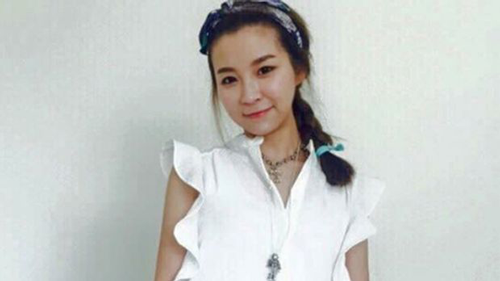
In the bail application, Shao’s Legal Aid solicitor Mary Underwood said her client had completed a five-year degree at Guangdong Medical University and specialised in dermatology. She said Shao had practised in China and Britain and obtained a master’s degree in health in Britain in 2010.
However, prosecutors said Shao was here on a tourist visa and had no recognised qualifications in Australia.
Medi Beauty, part of a chain that started in Victoria, advertises itself as a “laser and contour clinic” specialising in non-surgical facelifts, skin tightening, fat freezing and “anti-wrinkle injections”.
It recently opened in the Central Park development in Chippendale, with its website stating it is staffed by registered nurses and doctors.
It is a salient reminder to both cosmetic professionals and their clients that non-surgical procedures such as injectables are deadly serious business.
Because they are now so commonplace, many people either do not understand, or they underestimate the ramifications these treatments can have, and especially in the hands of untrained, unqualified, unregistered, unethical or otherwise inexperienced clinicians [SPA+CLINIC is not making this statement in reference to the matter before the courts].
The fact is, anti-wrinkle and dermal filler formulations (which are not designed for use in the breasts) are literally regarded as poisons.
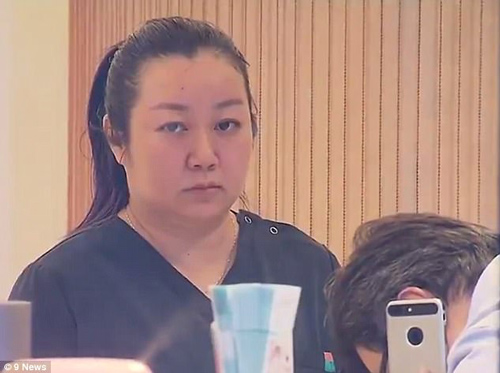
They are prescription medicines and should only be administered by a qualified, registered doctor or a specialist nurse practitioner who has prescribing rights under a doctor’s auspices.
Many medical products used in cosmetic procedures, such as botulinum toxin (eg. Botox), collagen, hyaluronic acid (eg. Juvederm, Restylane), other non-permanent fillers and lignocaine (local anaesthetic), are classified in the Poisons Schedule as S4 drugs.
Their use is controlled in NSW by the Poisons and Therapeutic Goods Act (1966) in order to protect the health and welfare of the community.
Cosmetic treatments involving skin penetration are regulated with NSW Health monitoring clinic standards.
The Chippendale clinic’s website states: “All of our treatments and equipment meet the highest industry standards and conform to all required legislation. All treatment facilities, materials, resources and products meet the stringent requirements of the Therapeutic Goods Administration (TGA) and Medicines Australia.”
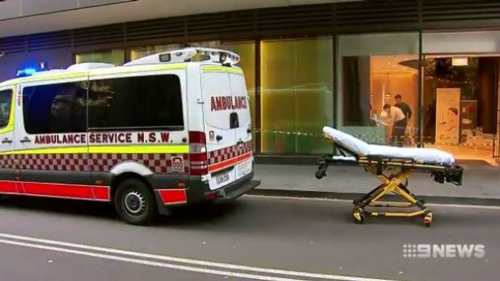
The TGA regulates the supply, import, export, manufacturing and advertising of therapeutic goods. It does not regulate cosmetics.
Medicines Australia is an industry group representing pharmaceutical companies.
Medicines Australia released a statement on Thursday saying it had no association with the Medi Beauty clinic.
“First and foremost, Medicines Australia hopes that the customer makes a full and quick recovery,” the statement read.
“Medicines Australia in no way regulates or has any association with the operators of the Medi Beauty clinic or any medical clinic operating in Australia.
“We encourage all Australians to seek the advice of a qualified medical professional when considering taking a medicine or undergoing a medical procedure.
“Medicines Australia is considering what action it should take in relation to the misuse of its company name.”
Leading Sydney cosmetic physician Dr Cath Porter told SPA+CLINIC today that, whatever the circumstances of the incident and outcome of court proceedings, it serves as a timely reminder of the seriousness of these cosmetic procedures.
Also, that it is the responsibility of ethical cosmetic medical and aesthetics professionals to reinforce this to their patients/clients and uphold all standards for their safety and wellbeing.
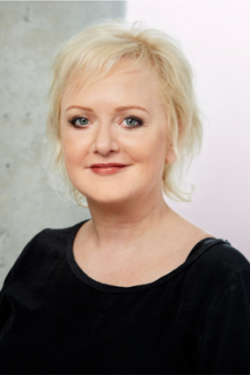
“It is shocking what has happened and my heart goes out to the woman and her family,” says Dr Porter.
“This is a worst nightmare scenario in cosmetic medical terms. I am not aware of the circumstances of this particular case but, generally speaking, S4 medications must be prescribed by doctor and medical back-up should be available, no matter how minor the procedure may be. It shows just how terribly wrong things can go.”
If your salon, spa or clinic doesn’t offer injectable services to clients but you know they are considering having these procedures, you will gain even more trust and respect by guiding them as to what they should be looking out for.
“Suggest to your clients that they check with medical colleges such as the ACCS, ACAM or CPCA as to the qualifications of the practitioner they are thinking of visiting,” says Dr Porter.
“When they do present for an appointment they should expect a thorough consultation as to their aesthetic concerns and desires and a health assessment re their suitability as a candidate before anything is performed.
“They have a right to ask the practitioner what their qualifications are, and how much training/experience they have had as a cosmetic injector. Also, what products are being used, to ensure they are TGA-approved.”
Practitioners must also be able to show evidence of informed consent.
Dr Porter stresses that price (as in the cheapest) should never be an overriding factor when deciding who to choose as an injector. Suspiciously cheap offers may be just that – suspicious.
It may indicate that the products being offered are illicitly obtained (likely online) with no proof of the safety or efficacy of their ingredients and/or the treatments are being performed by “unprofessionals”.
“It’s no good having a beautiful face on a dead body,” quips Dr Porter.
If your aesthetics business is considering employing the services of a cosmetic injector, Dr Porter urges you to ensure that injector is not only qualified and highly experienced in the art of cosmetic injecting but registered in Australia.
“Remember an event like the one in court today is a disaster all round. Most of all for the person who has suffered the medical incident, but then legally/financially for the business at stake and a devastating loss of reputation that could spell the end of that business, even if they are ultimately not found at fault.
“Always remember that you as salon, spa and clinic owners are liable, as well as the clinician who has performed the treatment.
“When you are providing these services you are completely responsible for a patient’s/client’s health. I always call to mind the most basic premise I was taught as a student doctor: `Do no harm’.
“When a patient sees a registered practitioner they know they are receiving care from someone who is appropriately trained and held to account to national standards.
“If you see someone who is not registered, you just don’t know what you’re getting.
“From my point of view [people risking procedures with `backyard’ operators] that is absolutely crazy behaviour.
“They are playing Russian roulette and taking huge risks with their health and even lives. They have a much higher chance of experiencing complications that may have longterm consequences.”
IF YOU ARE OFFERING, OR WANT TO OFFER INJECTABLES
Currently, it is not required by law to have an accredited facility for injectables, according to Dr Porter.
She has the following advice for salons, spas or clinics seeking to provide clients with access to injectables, either by having a doctor or specialist nurse visit on a regular basis, or based full-time at your business.
“A cosmetic clinic should be set up like a clinical procedure room,” she says. “A minimum standard would be:
- No carpet or soft furnishings
- A treatment chair or bed that can be sanitised post-treatment
- A sink for hand washing
- An appropriate emergency kit easily available
- Appropriate overhead lighting
- A contaminated waste and sharps disposal
- A fridge to store relevant products


